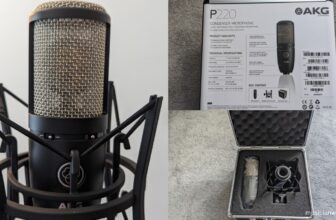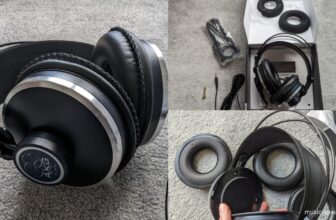10 Bad Music Production Habits

A bad music production habit is a habit that negatively affects the quality of a music producer’s output. These include not only habits that occur during the music-making process but also habits that impact one’s mood, commitment to work, and general well-being.
In this article, I have listed the 10 bad music production habits that, in my opinion, negatively impact music producers the most. For each bad habit, I have included one or more possible solutions to the problem.
Contents
- 1. Not finishing tracks
- 2. Not having a music production schedule
- 3. Producing without being in the zone
- 4. Doing the same thing all the time
- 5. Working with disorganized projects
- 6. Downloading too many VSTs
- 7. Forgetting about your well-being
- 8. Feeling like you know everything
- 9. Believing you’re not good enough
- 10. Not backing up projects
- Conclusion
1. Not finishing tracks
In music, as in life, unfinished projects teach us many valuable lessons. But in the end, it’s the things that we complete that count. Not finishing tracks is arguably one of the most common bad music production habits around and, in a way, it’s the fundamental aspect that separates accomplished artists from perpetual wannabes.
The solution to this problem is to commit to projects as seriously as possible. Deadlines can be a headache, but they’re also a huge incentive for finishing tracks. A less stressful alternative is to not start new music projects until completing an unfinished one. If you still find yourself stuck, you can always check these 10 tips to help you finish your tracks.
2. Not having a music production schedule
Because music production is an artistic endeavor, some music producers believe they don’t have to put in the hours to get good results. Instead, they prefer to wait for inspiration before starting a new project or continuing an old one. While this “strategy” may work for a few fortunate geniuses, most music producers won’t make it unless they follow a strict music production schedule.
The solution to this problem is to interiorize that music production is work, not fun. There is no doubt that most music producers enjoy their work, but that doesn’t mean that music production is an enjoyable activity that doesn’t require blood, sweat, and tears, as well as countless man-hours! Music production schedules should be followed as tightly as any other professional schedule.
3. Producing without being in the zone
With “producing without being in the zone,” I’m not suggesting that one should produce only when the mood is right. After all, it would be impossible to follow a music production schedule with that kind of mindset. I’m saying that part of a music producer’s job is to eliminate all possible obstacles that may distract him or her from the ultimate goal: making some quality music.
So, the solution to this problem is to make sure everything’s perfectly aligned to create the best possible working environment before starting to produce. This includes having free time, finding an appropriate place to produce, having all the necessary gear close by, being well-fed and free from other physiological constraints (a pre-production-session visit to the bathroom is always advised), and having a clear, sharp mind.
4. Doing the same thing all the time
Doing the same thing all the time is another bad music production habit that seems to spread like wildfire. And the worst part is that many music producers don’t even notice when they’re doing it; often, they believe they’re just being themselves.
Starting each new project with the beat, then laying down the bass, and finishing with the melody may be your comfortable way of producing music. But, following this train of thought 100% of the time will eventually make you feel stuck and prevent you from learning new things.
The solution to this problem is to try out new approaches to music production at least once in a while. Music producers should have a signature sound and a way of doing things, but they should never enter a cycle in which they’re basically remaking the same beat time after time. And if finding inspiration to experiment with new music-making methods is the problem, here are 10 ways to make your music more interesting.
5. Working with disorganized projects
I may be going against science with this one, but I believe that working with disorganized projects has a deeply negative impact on a music producer’s workflow and productivity levels. Knowing where each folder goes, labeling and categorizing VST and sample collections, organizing music projects in a way that feels natural… All of this takes time, but it has helped me immensely to stop feeling lost while producing and delivering results more quickly.
The solution to the problem of working with disorganized projects is, first of all, understanding the benefits of being organized. Giving a name to each of the 100 tracks in your most recent project will take a few minutes, but it will also come in handy during the music-making process, allowing you to recognize issues more easily and find all the tracks you need within seconds.
6. Downloading too many VSTs
Buying too many VSTs (or even downloading too many free VSTs) is another bad music production habit we see everywhere. With so many cool-looking new virtual instruments and effects hitting the market, it’s no wonder music producers will want to have them all. The drawback is that having too many VSTs can make music producers feel distracted. They will focus more on playing with and adding unnecessary VTSs to the music than on doing what they have to do for the music to actually sound good. The same applies to music tools other than VSTs, such as recording gear and even musical instruments.
The solution to this problem is to eliminate the noise and concentrate only on the tools one truly needs to make music. I believe that testing VSTs for a while before buying is extremely important; you should only buy a VST if it delivers something exceptional, something unique you won’t find anywhere else in your VST library. In a folder with 15 analog-style compressors, you’ll probably spend more time choosing the right compressor than making your track sound better with it. In this case, less is more, especially because it allows you to learn how to use a few VSTs instead of simply having a lot of different ones.
7. Forgetting about your well-being
What’s most important in the music-production process? Is it computer performance? Having a good analog rack? Or the music producer?
Sadly, many music producers are so focused on working on their music all the time that they forget about their well-being. Being unhealthy and unhappy is never a good thing, but it’s also bad for one’s output—whether it’s in music or any other activity. Music producers won’t be successful if they’re constantly in pain, feeling unwell, or unmotivated.
The solution to this problem is to start doing all the little things that will not only help you to feel better as a music producer but also as a human being. This includes following a healthy diet, having a correct posture (especially while producing), exercising routinely, and prioritizing mental health. The latter is of extreme importance: while listening to music has many psychological benefits, a University of Westminster research has found that Musicians are three times more likely to experience anxiety or depression than the general public.
8. Feeling like you know everything
One of the most surprising things I have learned while producing music is that confidence can deeply affect the quality of one’s output. On days I’m feeling too confident, I tend to be happy about whatever results I get (even if it’s not very good). But when I don’t believe in myself, I often give up on making music without giving it an honest try first. Bad music production habits #8 and #9 are precisely about finding the right balance between too much and too little self-confidence.
Overly confident music producers will sometimes feel like they know everything. This is a bad habit that more experienced (or successful) music producers often have. They already have a song on the radio, so why would they bother to continue watching YouTube tutorials, learning new music theory concepts, reading books, or collaborating with other musicians? The issue is that, in their haughtiness, overly-confident music producers will never evolve and become better.
The solution to this problem is to see success not as a sign that one should stop learning, but as a sign that one’s learning process has been effective. In other words, successful music producers should keep in mind that being successful shouldn’t give them the right to be lazy; on the contrary, music producers at the top have an increased responsibility of giving all they have to their fans.
9. Believing you’re not good enough
While an excess of confidence can make some music producers act complacently, a lack of confidence can cause others to give up music entirely. The “I’m not good enough” pandemic is surely one of the worst bad music production habits around, as it’s virtually impossible to make good music without firmly believing you’re capable of such.
The solution to this problem is to adopt an optimistic posture while producing. It’s about understanding that if you’re not good enough, it’s just because you’re not good enough just yet. Even the world’s most talented music producers weren’t born knowing what they know today. The road to success is made of many challenges, but it’s crucial to trust that the path will lead you somewhere. Such is only possible if you’re brave enough to believe in yourself.
10. Not backing up projects
No, backing up projects is not the fun part of being a music producer. But, you know what’s really not fun? Losing hundreds of hours of work just because you forgot to load your newest project onto your external disk.
The solution to this problem is simple: just start backing up all projects religiously! There are great cloud storage solutions for musicians out there, and these work even better than rusty-old external disks. Splice (reviewed here), Dropbox, Sync, and Elephant Drive are some of the best.
Conclusion
The Oxford Languages dictionary defines “habit” as “a settled or regular tendency or practice.” “Regular” is the keyword here. To make a living as a music producer, one must first start living like one—not sometimes, not once a month, not even once a week, but at every moment of every day.
Recognizing bad music production habits such as the ones listed above is the first step to becoming more professional, being more productive, and finishing quality tracks on a regular basis.





